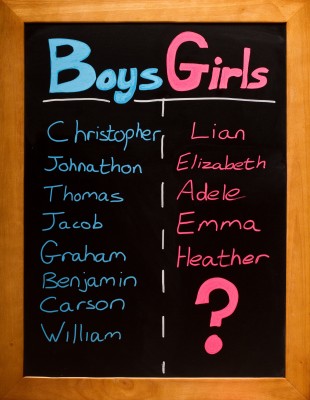“Names are an important key to what a society values. Anthropologists recognize naming as ‘one of the chief methods for imposing order on perception’.” ~David S. Slawson
I hope you all enjoyed Celebrate Your Name Week (CYNW) – March 3 through 9 – an entire week of honoring anthroponomastics (the study of personal names), with each day celebrating a different aspect of names, from “Unique Names Day” to “Middle Name Pride Day.” I don’t know about you, but I was most excited about National Genealogy Day, which is the culmination of festivities on March 9th.
CYNW was first established in 1997 by Jerry Hill, an onomatologist (one who studies the origins of proper names). National Genealogy Day is the 7th and final day of CYNW and is best understood as a day that reminds us to research, as well as appreciate our family genealogy and heritage. Once upon a time, ancestral roots were, more often than not, safeguarded by the family’s “old maid” or other members considered a tad eccentric. While some of these embedded genealogists traced family tree history for posterity, others may have been motivated by a desire to gain status by association with their more successful forefathers and foremothers.
Genealogists might consider family genealogy as just a hobby that has been given its own holiday, but tracing ancestry is a 365-day-a-year industry that continues to attract a significant number of people who have a passion for cracking family puzzles of who begat whom, including the what, when, where, how, and possibly why of it all. The number of family genealogy researchers is increasing at an amazing rate, and this certainly gives cause for celebration.
Many genealogy tree researchers, including the Mormons, do ancestry searches as a fundamental part on their journey in Faith. Other ancestor search aficionados look to trace their ancestry as a prerequisite to membership in one of many lineage organizations, including, but not limited to, the Daughters of the American Revolution (DAR), the Sons of the American Revolution (SAR), the Mayflower Society, or other history-based organizations. Additionally, the recent focus on inherited diseases and genetic predispositions have spurred even more people to consider genetic genealogy (i.e., DNA testing) through professional genealogical services, such as RecordClick.
Although we are surely more than what we inherit, we add something to the mix ourselves by celebrating National Genealogy Day, which promises to offer snippets of personal insight and some prime-time family genealogy surprises. As you find your ancestors, you may discover that you have a closet rogue or royal, sinner or saint. That’s part of the “good stuff” of ancestry searches (See Patricia Dingwall Thompson’s blog: “Finding the Good Stuff – A Case Study in Scottish Genealogy“), because eccentric ancestors make for entertaining conversation at parties and around the Thanksgiving table.
If you’re fortunate to have your parents, aunts and uncles, or grandparents still living, consider observing National Genealogy Day by asking them to share their family genealogy stories and family history to help you in your endeavor to find your ancestors. Some website that will help you get started writing your family genealogy include:
- 10 Steps to Writing Your Family History
- Writing Your Family and Personal History
- The Armchair Genealogist: Research and Write Your Family History
- How to Write Your Family History
Here are a few other ideas for celebrating National Genealogy Day:
- Family stories are further fueled by making the dish that Grandmother (or other favorite family cook) was known for. Never underestimate the influence of aroma and taste on memory.
- Don’t forget to collect and share family photos and letters, too.
- If convenient, use the day to visit a cemetery where an ancestor rests. Tombstones include the date of birth and death, a maiden name, and name of spouse or parents, and sometimes an invaluable gem about those left behind.
- Public libraries often mark National Genealogy Day. Go and learn the basics of family tree research for free.
- Thanks to several websites, such as Ancestry and RootsWeb, genealogists can do ancestor searches online for free. (Always verify the posted information, which may have been incorrectly transcribed.)
- Consider contacting a genealogy ancestry service, such as RecordClick, to help you get started or continue productively on your genealogy journey to trace family history, even beyond personal memories and published genealogies. RecordClick has professional genealogical researchers available to help you unlock those hard-to-crack family search genealogy mysteries.
At its heart, National Genealogy Day is about delving into family genealogy, allowing genealogists to discover where their ancestors lived, what lives they led, as well as the joy, pain and brokenness, and healing and grace, left in their wake. National Genealogy Day can help connect us as individuals, families, and communities. Don’t wait until March 9th to start celebrating.
Sylvia Lambert offers an extensive background in writing for corporate and consumer audiences. Among her accomplishments, Sylvia co-founded the Fredericksburg Herb Farm, Fredericksburg, Texas, and coordinated the Farm’s marketing communications for more than 15 years. Her published work includes “Along the Garden Path,” a compilation of herb recipes and lore, and “Herbs: Growing and Using the Plants of Romance,” which earned the Benjamin Franklin Book Award for outstanding contribution to gardening and agriculture information. Sylvia earned her BA from Rice University and MBA from Texas Tech University.







